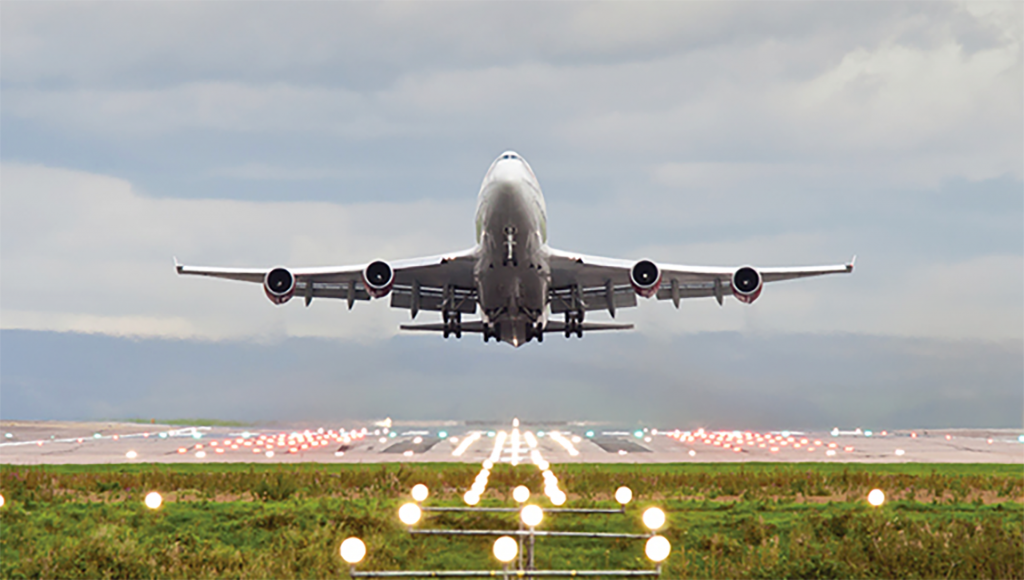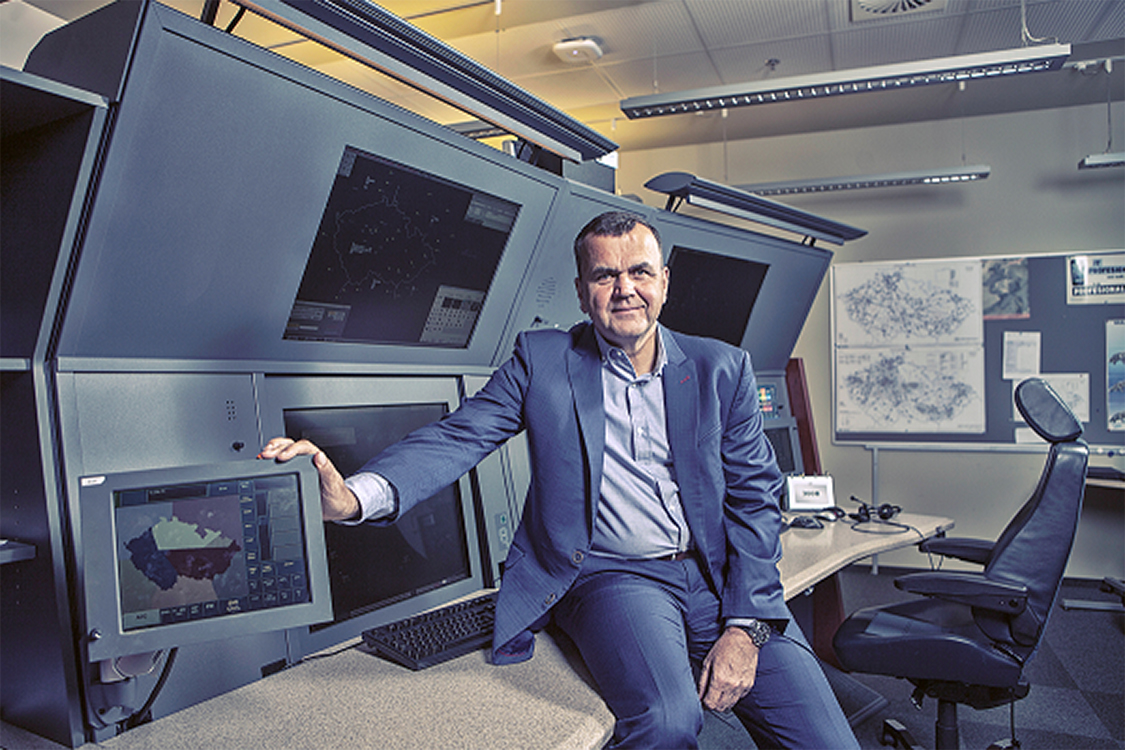Airspace Q4 2019 – Advocating for ATM
CANSO had a significant presence at ICAO’s 40th Triennial Assembly, held from 24 September to 4 October 2019. CANSO submitted four working papers, all of which were ratified with minor comments.

What is the ICAO Assembly?
The ICAO Assembly is the organization’s sovereign body. It meets at least once every three years and is convened by ICAO’s governing body, the Council.
ICAO’s 193 Member States and a large number of international organizations are invited to the Assembly to establish ICAO policy for the next three years.
The Assembly reviews ICAO’s complete work programme in the technical, economic, legal and technical cooperation fields. Assembly outcomes – voted on by the Member States – are then provided to other ICAO bodies to guide future work, as prescribed in Article 49 of the Convention on International Civil Aviation.
Given that advocacy is one of the key pillars of CANSO’s Fit for the Future strategy, some of the CANSO team were in Montreal ensuring that the voice of ATM was heard.
Working Paper 1
Efficiency in Air Traffic Management through Required Navigation Performance
The precise and predictable track containment of required navigation performance authorisation required (RNP AR) procedures has allowed it to evolve from providing improved accessibility to terrain and obstacle-challenged airports to a variety of operational developments, all of which bring safety, environmental and efficiency benefits.
CANSO’s paper highlighted those benefits and also identified some key milestones in RNP AR procedure that have allowed it to become a key enabler of the performance-based navigation (PBN) airspace concept. The paper argued that a system-wide strategy of promoting and implementing RNP AR procedures at a multitude of high, medium and low-density airports should therefore be pursued.
CANSO has been a strong advocate for PBN deployment since its inception and released Accelerating Air Traffic Management Efficiency: A Call to Industry in 2012. This was followed in 2015 by Performance Based Navigation Best Practice Guide for Air Navigation Service Providers (ANSPs) to provide practical guidance on PBN as it applies primarily to terminal airspace environments. In addition, in February 2017 CANSO produced Performance-Based Navigation for ANSPs: Concept 2030, which identified current and future PBN-related technologies and services, and potential impediments to successfully implementing PBN.
CANSO continues to work with ICAO regional offices and CANSO members to examine ways of further supporting RNP AR deployment and in highlighting the benefits that can be achieved in many instances for ATM and aircraft operations, as well as for the environment.
In the paper, CANSO invited the ICAO Assembly to:
- Take note of the information and benefits regarding the implementation of RNP AR;
- Take note that RNP AR will reduce flight distances, fuel burn and CO2 emissions;
- Take note of recent benefits of the application of new ICAO separation standards incorporated into PANS ATM that are specifically related to RNP AR;
- Recognise the work of CANSO and its Members in introducing RNP AR;
- Instruct ICAO to create implementation guidance material for States on implementing Established on RNP AR in Doc 9643 based on the information referenced in the working paper;
- Urge all States to consider introducing RNP AR where applicable based on the expertise of CANSO.
OUTCOME: The Assembly acknowledged the importance of developing RNP AR procedures, where applicable, and recommended that States should consider their use. The Assembly noted that appropriate expert groups were addressing the development of guidance for RNP AR under the existing work programme on the subject.
Working Paper 2
Building Capacity in ATM
Rapid growth in air traffic demand means ATM must modernize globally and regionally. The paper looked at how capacity can be delivered in accordance with ICAO’s Global Air Navigation Plan (GANP).
It called for a performance framework that accounts for the interdependencies between investments needed to ensure capacity, the effect of growth on the environment and the potential impact this could have on costs – all bearing in mind the overarching principle of safety.
The paper noted that “planning and delivering optimised airspace capacity is not something that can be done by ANSPs in isolation”. Though a cooperative culture between all stakeholders and regions, with shared goals, was emphasized, it was also acknowledged that an appropriate legal and regulatory framework was essential.
When setting flight schedules, airspace users and airport operators should engage early with ANSPs, for example, so that the impact on the performance of the overall network can be assessed and potential outcomes understood.
The paper also highlighted the importance of funding. National and regional funding schemes should incentivise transformation so that the accelerated deployment of new technologies that demonstrate a tangible benefit to network performance is duly rewarded. Funding schemes are also essential to major modernisation schemes such as SESAR and NextGen.
In the paper, CANSO invited the ICAO Assembly to:
- Instruct ICAO to further elaborate guidelines and best practices for the design of performance frameworks that include consideration of interdependencies between key performance areas;
- Instruct ICAO to strengthen the inter-regional cooperation between ICAO planning and implementation regional groups (PIRGs) to provide the required support to develop ANS performance enhancements;
- Request States to commit to enhancing collaboration and partnership as aviation recognises and addresses its multidisciplinary challenges ahead;
- Urge States to facilitate the appropriate funding of ATM systems to deliver the capacity needed to meet the expected growth in air traffic.
OUTCOME: The paper was co-signed by ICCAIA and Singapore. The Assembly agreed that States should be urged to enhance collaboration and partnership to address common challenges to facilitate appropriate funding for ATM systems and CNS infrastructure, as well as to ensure that the appropriate financial mechanisms were in place to enable an effective deployment of operational improvements.
Working Paper 3
Ensuring Future Services by Adherence to Key Principles and Mutual Value
The paper noted that ICAO, States, ANSPs and other service providers’ are essential to the implementation of the Global Air Navigation Plan (GANP) with the same common objective and collaboration as was evident in the development of the GANP.
It further described CANSO’s commitment to advance key ATM initiatives and ensure the effective use of technology to increase ATM capabilities. To achieve these goals, the shared acceptance of common goals and mutual understanding and commitment to the necessary steps is essential.
In the paper, CANSO invited the ICAO Assembly to:
- Urge States to take a collaborative and concerted effort to provide for air navigation for the future in alignment with the GANP;
- Endorse fundamental principles as the bases for the implementation of the GANP;
- Affirm the need to enhance ATM infrastructure while ensuring the interoperability and harmonization of ATM systems to avoid airspace fragmentation; and
- Urge States to support and promote the enhancement of ATM infrastructure, as outlined in the GANP, to ensure the continued provision of safe and efficient service to growing.
OUTCOME: The paper was widely supported by ICAO Member States. Following discussion, a resolution was accepted to supersede Assembly Resolution A39-12.
The resolution:
- Endorses the third edition of the Global Aviation Safety Plan (GASP) and the sixth edition of the Global Air Navigation Plan (GANP) as the global strategic directions for safety and air navigation, respectively;
- Resolves that these global plans shall provide the frameworks in which regional, subregional and national implementation plans will be developed and implemented, thus ensuring consistency, harmonisation and coordination of efforts aimed at improving international civil aviation safety, capacity and efficiency;
- Urges Member States, the industry and financing institutions to provide the needed support for the coordinated implementation of the GASP and GANP, avoiding duplication of efforts.
Working Paper 4
Cyber Resilience
Simply, a greater reliance on connected systems presents a bigger cyber risk. The paper called for a more effective response to this growing threat.
It noted that “the current work method of ICAO to address cyber resilience, safety and security-related issues is not sufficiently coordinated and not efficient”.
ICAO action in regard to cyber resilience is evaluated by the ICAO secretariat study group for cyber-Security (SSGC). The lead is with the ICAO Air Transport Bureau (ATB) and supported by the ICAO Air Navigation Bureau (ANB). This results in little governance from States, the Air Navigation Commission (ANC) and the ICAO Council.
The SSGC is unable to propose standards or recommended practices, however, and has no mandate to coordinate the activity of all the panels or working groups related to cybersecurity. It just provides advice.
Given the importance of cybersecurity and the need for quick action, there is a need for a more effective way of addressing the issue. The paper suggested that the SSGC should be upgraded to an ICAO Panel under the ICAO Council and that the newly formed Trust Network Study Group should be placed under this new Panel as a working group.
Creating a multidisciplinary panel on cyber resilience would enhance the coordination and efficiency of investigating and countering related issues in the aviation system.
The paper invited the ICAO Assembly to:
- Recognise the need for a speedy, well governed multi-disciplinary approach to cybersecurity
- Urge the ICAO Council to create a Cyber Resilience, Safety and Security Panel (CRSSP) under governance of the ICAO Council and the Air transport Committee (ATC).
- Urge the ICAO Council to create a working group under the newly formed CRSSP to establish a framework for an aviation trust network.
OUTCOME: The Assembly supported the views expressed in the paper. A resolution promoting a consistent and coherent approach to managing cyber threats and risks and how best to address cybersecurity in civil aviation was adopted.
The aim was to ensure global commitment to action by ICAO, its Member States and industry stakeholders, with a view to collaboratively and systematically addressing cybersecurity in civil aviation and mitigating the associated threats and risks.
CANSO also supported working paper 328 presented by Singapore promoting awareness of AVSEC to other agencies and organisations.
To view the submissions in full please visit: www.canso.org/40th-icao-assembly



